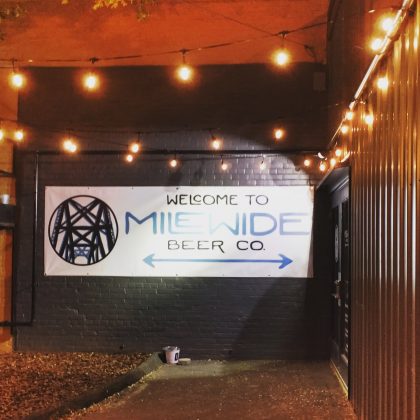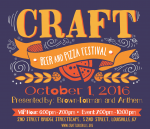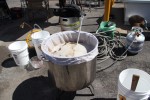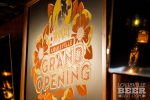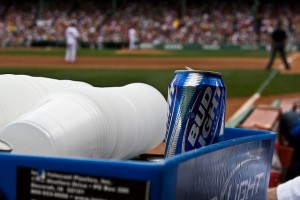Professional baseball’s spring training is underway, and it isn’t too early to begin considering the prospects for locally brewed craft beer at Louisville Slugger Field in 2012. The Louisville Bats begin play in April, and only then will we know if the fragile, halting forward progress of craft beer availability during the past three years will be repeated this season.
I shan’t be holding my breath, but as usual, I hope I’m mistaken.
Since the inception of Louisville Slugger Field, a facility constructed with monies generated by local tax revenue, the Triple-A Louisville Bats have remained slavishly beholden to the narrow interests of Anheuser-Busch (now multi-nationalized into AB-INBEV), dooming generations of local baseball fans to the lowest common denominator of insipid multinational yellow lager, even as the ballclub continues to insist that the Louisville Slugger Field experience is purely “local” in aim.
In 2009, I wrote a piece in LEO, and this excerpt aptly conveys the perennial disconnect between what Bats management says it will do and what it actually proceeds to do – a state of affairs dating to the last Clinton administration.
According to Gary Ulmer, President of the Louisville Bats, this season a rotating Browning’s beer will be on tap at one of the portable stands along the concourse in the area behind third base.
Courtesy of Ulmer, here are the other beers being served at Louisville Slugger Field:
Bud, Bud Light, Miller Lite, Miller High Life, Coors Light, Bud Light Lime, Michelob Ultra, Michelob Amber and Light, Amber Bock, Shock Top, Landshark, Red Stripe, Smithwick’s, Rolling Rock, Red Hook IPA, Sam Adams, Sam Adams Brown Ale, Beck’s, New Castle, Harbin, Bass, Stella, Labatt’s Blue, Sierra Nevada Pale Ale, Tiger, Heineken, Peroni, St. Pauli and Corona.
Browning’s is a start, although if you’re keeping score, that’s 30 non-local to 1 local.
The way these matters work in the real world is fairly well understood. An entity such as AB-INBEV spreads advertising cash throughout the back alleys of the stadium authority, or in this case, the team itself, which is the day-to-day operator of Louisville’s taxpayer-funded baseball venue.
Centerplate, chosen monopolistic concessionaire of the Bats and so many other sporting operators, then miraculously ensures that AB-INBEV’s product placement will is done. There is no direct, necessary connection between one and the other, in the same way there is no provable link between anniversary gifts and the state of happiness in your marriage. Shit just somehow happens, kaka occurs, and mass-market swill enjoys a leaden grip on the palates of the baseball watching public.
Sporadic offerings from Browning’s were welcomed in the past, of course, but Browning’s tended to be on life support at the best of times. In 2010, NABC initiated a discussion with Centerplate that led to a remarkable occurrence: Via the River City Distributing wholesaler, and evidently absent indirect payola or onerous advertising terms, two craft draft handles magnanimously would be permitted to pour, as surreptitiously hidden behind the “hot roasted peanuts” bin at the concession stand along the concourse by Section 115.
Naturally, there could be no banners or signage larger than table tents normally sized for cocktail bar use, because Daddy Big Busch Bucks would be gravely insulted, but it was a big step forward. NABC Beak’s Best and Alltech’s Kentucky Ale went on tap, albeit briefly, presumably owing to “personal” reasons; in short, because I was designated for ritualistic scourging, having had the temerity to publicly discuss the naked truth about the Bats and Centerplate’s odious practices all these years.
(Oddly, Centerplate subsequently told our wholesaler that Kentucky Ale would not be returning because it “isn’t local,” even though Alltech was in the process of inking a substantial sponsorship deal to have its beers in the Yum Center just blocks down the street, and of course, despite the location of AB-INBEV’s world headquarters somewhere within the European Union. They’re not the sharpest pair of spikes in the locker room, are they?)
However, Centerplate’s act of retaliation against NABC and Alltech was to put BBC APA and Cumberland Red next to the peanuts for the remainder of 2010 and all of 2011. NABC and Alltech may have lost the battle, but craft beer won the war, at least for a little while, and I definitely could live with that.
The question in 2012 is whether BBC’s and Cumberland’s tenuous keg placements will survive shifting variables.
Two larger factors have changed since the 2011 season ended. First, the positive one: Browning’s finally faded into history and was replaced by Against the Grain. ATG’s energy and enthusiasm might well alter the balance within the yard’s turnstiles, adding more choices to the two crafts already in place. Even if not, there’ll be great beer quite close at hand at ATG. This could be a win-win.
Second, the negative development: AB-INBEV completed its acquisition of Goose Island. Overnight, Goose Island ceased to be a craft beer in any meaningful sense, and instead became AB-INBEV’s probable nuclear weapon of choice in the war for shelf space at the targeted expense of legitimate locally-owned craft brewers.
It takes little imagination to gauge this scenario: AB-INBEV pitches Goose Island to the Bats as the “craft” beer portfolio it is able to both abundantly supply and profusely support with ad money. Up go their banners, out go the newspaper ads for Goose Island Craft Beer Night … and away go the two local brewery taps, because AB-INBEV’s not doling out the dollars for a genuinely free market, is it?
I’ve no way of knowing whether this scenario might come to pass, although it is highly unlikely that AB-INBEV ever would have swallowed Goose Island whole without imagining bait-and-switch “craft” tactics just like these, guaranteed to give its foreign-based upper brand managers the first sans-Viagra erections they’ve welcomed in decades.
In baseball as in beer, it’s always useful to follow the money.

